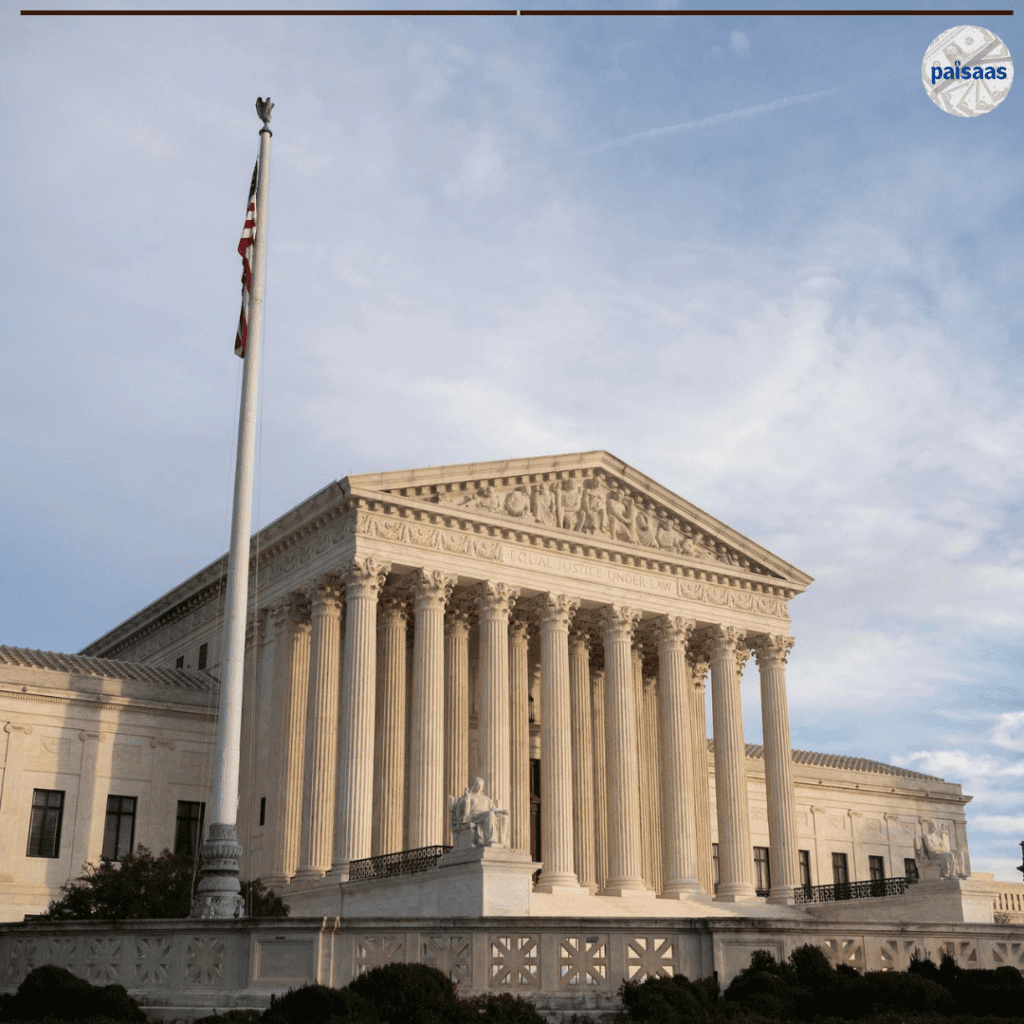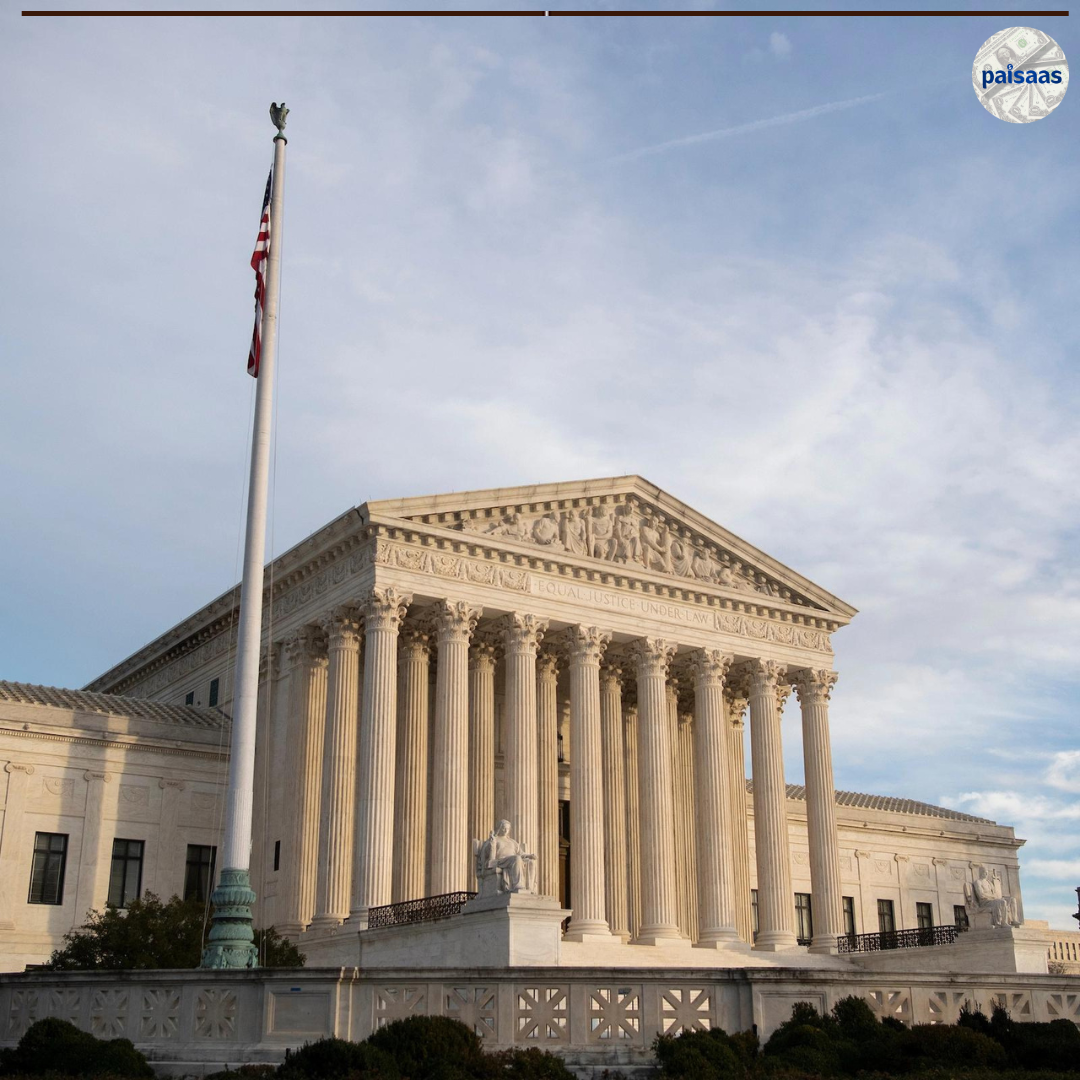

the Supreme Court upholds the Biden immigration rules
the Supreme Court upholds the Biden immigration rules
A federal judge in Texas banned the rules, which established priority for which undocumented immigrants should be held.
On Friday, the Supreme Court rejected a lawsuit from two Republican states that pushed for more active enforcement and gave President Biden a significant victory by saying that the Biden administration may determine priorities for which undocumented immigrants to arrest and which to leave alone.
The disagreement was a part of a larger conflict between Republican-led states, who frequently sought to thwart the administration’s immigration agenda by challenging policy after policy in court, and Vice President Biden, who has struggled to strike a balance between control of the southern border and humane treatment of immigrants. The Supreme Court recognised the complexity of the issue and the crucial role the executive branch must play in finding a solution by giving the administration discretion over who to detain.
By voting 8 to 1 to rule that Texas and Louisiana lacked standing to sue, the majority also expressed scepticism about state-level challenges to immigration policies in a field that has traditionally been the purview of the federal government. More broadly, the decision imposed additional restrictions on the growing number of politicised cases states have brought against federal programmes during the past ten years.
‘We could foresee complaints in future years about alleged executive branch under-enforcement of any similarly worded statutes – whether they be drug laws, gun laws, obstruction of justice laws, or the like,’ Justice Brett M. Kavanaugh wrote for five justices. We reject putting the federal judiciary on that untested course.
The Homeland Security Department released guidelines in 2021 that prioritised “national security, public safety, and border security” when determining which illegal immigrants should be detained.
The new regulations aimed to reverse the broad goals of the Trump administration, which promised to “take the shackles” off ICE officials and warned that everyone in the country without proper papers might be targeted for deportation. The Biden administration said that under its instructions, ICE would instead concentrate on people who posed a threat to national security and had just crossed the border.
Agents from ICE gave priority to unauthorised immigrants with criminal records in the latter years of the Obama administration. Before a subsequent reduction in deportations, Mr. Obama executed more over 409,000 removals in 2012, leading immigration groups to dub him the “deporter in chief.”
During the 2020 presidential campaign, President Joe Biden expressed criticism towards the Obama-era immigration strategy, referring to it as a “big mistake.” This criticism highlighted a recognition that the previous approach had its shortcomings and needed improvements. On the other hand, Republicans have seized on the new rules and the record number of border crossings to portray former President Donald Trump as being strong on law and order.
One of the key changes implemented under the Biden administration’s immigration policy was the modification of rules regarding the detention of immigrants with criminal backgrounds. These changes faced legal challenges as states like Texas and Louisiana filed a lawsuit to halt the implementation of the rules. The argument put forth by these states was that the new rules violated a federal law that required mandatory detentions, as they allowed individuals with criminal backgrounds to remain at large while their immigration cases were being processed.
The lawsuit highlights a conflict between the federal government’s approach to immigration and the concerns raised by certain states. The states argued that the revised rules undermined the mandatory detention provision, potentially posing a threat to public safety. They contended that individuals with criminal backgrounds should not be released during the processing of their immigration cases and should instead be detained as required by federal law.
The issue of immigration has long been a contentious and complex matter in the United States. Different administrations have adopted varying strategies to address the challenges and opportunities associated with immigration. The Biden administration’s approach aims to prioritize humanitarian considerations, such as providing alternatives to detention for certain individuals while their cases are being adjudicated.
It is important to note that the immigration system is subject to a range of legal and policy interpretations, which can lead to disagreements and legal challenges. The lawsuit filed by Texas and Louisiana reflects the ongoing debate surrounding immigration and the divergent viewpoints on how to balance law enforcement objectives with considerations of due process and human rights.
As the case unfolds, the courts will examine the arguments put forth by both sides and make determinations regarding the legality and constitutionality of the revised rules. The outcome of the lawsuit will have implications for how immigration cases are handled and whether mandatory detention requirements are maintained or modified.
Overall, the lawsuit filed by Texas and Louisiana highlights the tensions and complexities surrounding immigration policy in the United States. It underscores the need for comprehensive immigration reform that addresses the concerns of different stakeholders while upholding the principles of justice, fairness, and national security. The resolution of this lawsuit and ongoing efforts to shape immigration policy will play a significant role in determining the future direction of U.S. immigration law and enforcement.




